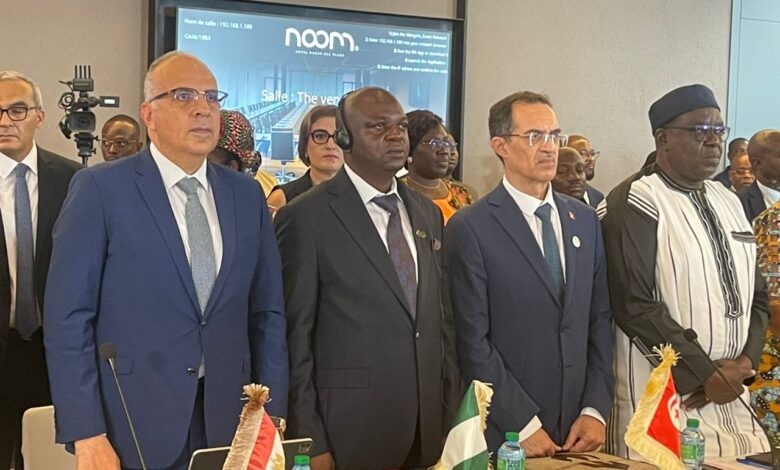
Africa has taken a significant step towards transforming its water governance with the adoption of the African Water Vision 2063 at the 14th session of the African Ministers’ Council on Water (AMCOW), which concluded in Dakar on Monday.
The long-awaited document aims to position water resources at the centre of Africa’s economic and social transformation while addressing the mounting pressures of climate change and population growth.
It provides a continental framework that will allow Africa to speak with one voice on global water issues and push forward its priorities on the international stage.
“This was done here in Senegal, under the presidency of Senegal,” said Cheikh Tidiane Dièye, Senegal’s Minister of Hydraulics.
He described the adoption as “an important moment, a historic moment.”
The new vision advocates integrated resource management and emphasises the role of water as “a transformational lever for economic and social development.”
It prioritises mobilising domestic resources before turning to external financing, reflecting the continent’s ambition to achieve greater financial autonomy. Technological innovation and digital solutions are also central to ensuring effective and transparent resource management.
The Dakar session gathered nearly 17 ministers and more than a dozen additional representatives from member states, making it one of the most widely attended AMCOW meetings to date.
Deliberations were described as constructive and open, leading to the swift approval of all decisions and resolutions.
“With the vision documents we have adopted, Africa will have what it needs, its framework, to be able to speak with one voice, count on the international scene and advance its own needs and concerns,” Mr Dièye said.
The African Water Vision 2063 will now be forwarded to the African Union and subsequently presented at the Summit of Heads of State and Government for final adoption.
In addition to approving the new framework, ministers also endorsed measures to strengthen AMCOW’s institutional capacity. The Nigerian-based secretariat will receive financial and operational support, partly through improved contributions from member states.
Senegal’s leadership in water diplomacy was a recurring theme throughout the meeting. Mr Dièye highlighted national and regional initiatives, including the Senegal River Development Organisation (OMVS) and the Gambia River Development Organisation (OMVG). He also pointed to major infrastructure projects that showcase the country’s commitment to regional water cooperation.
Senegal’s global role is set to expand further in 2026, when it will co-host the United Nations Water Conference alongside the United Arab Emirates. Preparations for the event will begin in Dakar with a high-level meeting early next year.
“Senegal continues to assert its leadership in the issue of water and diplomacy in general,” Mr Dièye said, citing “examples that already strengthen Senegal’s position as a pioneer, as a leading country in Africa and in the world.”
The African Water Vision 2063 aligns with the African Union’s broader Agenda 2063, known as The Africa We Want, and sets the foundation for sustainable, equitable water management across the continent.



